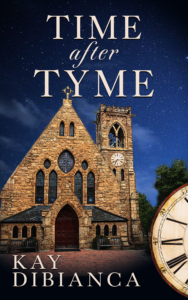
There are many familiar adages that refer to the need to be careful and diligent in our work.
“The race is not always to the swift.” – from Aesop’s Fable, The Hare and the Tortoise
“Whatever is worth doing at all, is worth doing well.” – Philip Stanhope, 4th Earl of Chesterfield
“There are no shortcuts to any place worth going.” – Beverly Sills
Here’s one you may not have heard of:
“Festina Lente.”
I encountered this saying a couple of years ago, and it captured my imagination. So much so that it’s written at the top of the whiteboard that sits on my desk so I see it every day as I’m working.
Festina lente is a Latin phrase that literally means “make haste slowly.” It’s an oxymoron, a contradiction in terms, that refers to the proper balance of speed and diligence in one’s chosen field. Too fast and you risk delivering a sloppy product. Too slow and you miss opportunity. Finding the right pace is the key to success.
The phrase has been used throughout history. One notable proponent was the Roman Emperor Augustus who used it to caution his military commanders against making rash decisions. The emperor apparently felt so strongly about it that he had coins minted with images that referred to the saying.
Writers will be interested in the Renaissance printer Aldus Manutius who adopted the phrase Festina lente and its symbol of a dolphin wrapped around an anchor for his publishing business. Interestingly, the dolphin / anchor symbol is currently used by Doubleday Books.

Manutius was a highly successful businessman who made significant contributions to the fields of printing and publishing. In addition to inventing the italic typeface, he produced the first small, portable books that scholars regard as the prototype of modern paperbacks.
So how does Festina lente apply to authors today?
Self-publishing has made it easy to publish without a quality gatekeeper, so the opportunity is there to rush an unpolished manuscript into production. On the other hand, it’s possible to overanalyze every word and phrase in an endless cycle of revision and never publish anything at all.
Each author has his or her own methodology from concept to production. Some are awesomely speedy in their work. Others (me, for example) are on the lente side of the equation. But in any case, we each build the finished product to our own specifications and on our own timeline.
So TKZers, how do you thread the needle between too fast and too slow? Do you have a word count quota to keep your pace up? What quality controls do you employ? How do you know when you’ve cleared the last hurdle and are ready to release the book into the wild?
* * *

“Slowly make haste, and without losing courage;
Twenty times redo your work;
Polish and re-polish endlessly,
And sometimes add, but often take away.”
— Nicolas Boileau-Despreaux
Festina Lente!
* * *
Nancy Drew meets Tom Sawyer in this new release, book three in the Watch series of cozy mysteries featuring Kathryn Frasier and Cece Goldman.
Mr. Tyme is dead, and strange, coded messages have been left in the chapel prayer box on the campus of Bellevue University. When Kathryn and Cece attempt to decipher the codes, they begin to suspect foul play. But things get dicey when a couple of misguided young girls get wind of the investigation and decide to find the killer on their own. It’s bedlam in Bellevue!


This reminds me of a sign hanging in a business somewhere long, long ago. “If you don’t have time to do it right, when are you going to have time to do it over?”
My pace is set by a word count goal, although I vary it as the need–or inspiration–arises. Right now, I’m reviewing my editor’s feedback, and she’s pointed out places where I should have slowed down. Little things, but they have to be fixed, like a character knowing another character’s name before they were introduced, or another character showing up in a scene for no reason.
Good morning, Terry.
I like that sign in the business. It’s so easy to get caught up in the moment and hurry through things.
I was thinking last night that the first draft is festina and all the revisions are lente. Good luck on your next book!
Kay, I did a double-take at the opening of your post this morning. I read a collection of Aesop’s Fables last night and, of course, our friends the hare and the tortoise were included. I have been thinking about that. I have also for the last few days been listening to nothing but reggae music for no particular reason. The beat doesn’t move particularly fast but is nonetheless relentless. I have “Don’t Want Nothing” by Reemah on right now. The flip of that is that I was in a hurry and just spilled coffee all over some notes I wrote about a dream I had last night and had to stop what I was doing to transcribe and clean up in that order.
To answer your question…I think of dripping water. Each drop comes slowly but eventually wears through the stone beneath. So too the words which eventually reveal the story.
Thanks for the great post, Kay.
Good morning, Joe! You and I must be on the same wavelength — both thinking in terms of Aesop and his wisdom. I wonder if he had a word quota.
I like your analogy of dripping water. We visited a cavern outside San Antonio recently and the results of a few thousand years of drips is pretty amazing.
Have a great day.
Kay, I also appreciate pithy sayings that condense wisdom into a few words that are easy to remember and hard to forget. Thanks for teaching me a new phrase in Latin.
Your question about knowing when a book is ready reminds me of the old commercial with Orson Welles: “We will sell no wine before its time.” https://www.youtube.com/watch?v=oSs6DcA6dFI
My process: edit as I go, catching typos, repetitions, reversed words, etc. with each pass. Never counted but I’m guessing that adds up to several dozen read-throughs. First drafts are pretty clean.
Then to first-round beta readers, editors, and research experts who find more errors, parts that need additional explanation, and dangling subplot lines to wrap up.
Next, a second round with DIFFERENT beta readers to see if all concerns have been resolved.
Then more read-throughs using tricks like printing with a different font, reading aloud, etc.
The process takes two-three months from the completion of first draft to ready-to-release. By then, I have the whole miserable thing memorized.
Last January, I had the pleasure of doing a first page critique from an anonymous Brave Author. I struggled to find suggestions b/c it was so good. http://killzoneblog.com/2021/01/first-page-critique-rene-out-on-a-limb.html
So I’m delighted to see the rest of the story. Congratulations, Kay, on Time After Tyme!
Good morning, Debbie.
Your process sounds a lot like mine, though it takes me a long time to get that first draft finished. (I’m thinking of buying a warehouse to store all the words I’ve discarded.) You have two rounds of beta readers!? That’s interesting and I can see why it would be helpful.
I love this statement: “By then, I have the whole miserable thing memorized.” I know exactly what you mean. I can probably recite word-for-word entire chapters of my last book.
Btw, your first page critique of what became Time After Tyme gave me the confidence to build on that first chapter. I am so grateful to you and the folks who commented. I am a great believer in first page critiques. There are a lot of good, solid takeaways in them. So thanks!
?
Great post, Kay. And thanks for the quotes. I especially like the quote from Philip Stanhope, 4th Earl of Chesterfield. Whenever I’m working with a family member, and they’re getting impatient with my “attention to detail,” I always say, “If it’s worth doing, it’s worth doing right.” Now I know where those words came from.
My festina is a word goal for each day. But, at the same time I limit how many hours I write. I need some strenuous activity and outside work each day to take care of our property and maintain my sanity.
My lente is many passes over the “finished” manuscript before it’s off to beta readers, revisions, and final editing.
I really enjoyed reading Time after Time , Kay. It was time well spent, a great read.
Have a great day!
Good morning, Steve!
I had to look Stanhope’s quote up recently because I wanted to use it but didn’t know who to attribute it to.
I liked the way you described your process. You’re smart to have a word quota *and* to limit the number of hours you write. Sanity is a good thing to preserve.
Thank you, Steve, for reading Time After Tyme. Knowing you enjoyed it is a great compliment.
Kay, good reminder. In 2012 I released Self-Publishing Attack! which includes my 5 unbreakable laws for indie success. One of them is to institute a system of quality controls, which I explain. It works because you’ve got to view this gig as a business…for that is what it is.
Good morning, Jim, and thanks for the reminder about Self-Publishing Attack! I thought I had all of your books, but I missed that one. (Just corrected my mistake.) I’m looking forward to reading it.
Coming from a software development background, I’m aware of the value of quality controls. It’s easy to produce sloppy software, but we all know what it’s like when a program crashes. With millions of books to choose from, nobody wants to struggle through a story with lots of mistakes.
?
Thanks for teaching me a new Latin phrase, Kay. Love learning new words.
I edit the previous day’s work before moving forward. Cleans up the manuscript and gets me back into the story. I don’t keep track of word counts. Rather, I count scenes or chapters. A trick I’ve learned is to stop for the day right before the last paragraph or two. That way, I won’t start the day by staring at a blank page. Works great!
Good morning, Sue. I love the phrase Festina lente. It says it all in two short words. Now, if I can just put it into practice!
I like your idea about ending a chapter before the last couple of paragraphs to get a starting point the next day. It probably gives those boys in the basement something to work on overnight. Great advice!
Good morning, Kay! A wonderful post to start the week. This is a great quote. I knew of it, but hadn’t seen it applied to writing. There’s a similar German quote that I have applied to writing: “go slow now and go fast later.” I remind myself of that. Drafting can usually be fairly quick for me, revision, well, it depends.
My cozy mystery revision has definitely lente to date. I’ve tried page counts as a metric, but to date, the revision has been off the page, in extensive notes and fresh outlines, rejiggering the plot, getting a better handle on character motives, secrets, the murderer’s story etc.
I’m now, finally at the point where I can “go fast”. I have a developmental editor waiting for the book early next year. Daily pages revised goals will help achieve that. Then it will be another revision, followed by beta readers, more revision, followed by a copy edit and proofing. I think all the work, all the going slowly in this novel will translate to going a faster in the next in the series, which already has a rough outline.
Thanks for another thought-provoking post. Have a wonderful start to the week!
Good morning, Dale!
I’m looking forward to your cozy mystery. I have reserved a space on my tablet for it!
I can identify with all the steps you’re going through. Writing novels is so much more than I thought it would be when I started this. But, frankly, I love everything about it.
Have a great week.
Excellent post. Being a bit of a perfectionist, I struggled with this early on. But I’ve found a balance that works for me… I’m (currently) a one-book-per-year guy. So the deadline is right about now (am waiting for a proof book to arrive for a final read-through-and-correct). I know roughly when the first draft needs to be completed, and then I have my feedbackers: (1) myself, (2) my hired dev editor, (3) my beta readers. When all thumbs are pointing up, I’m ready for the wilderness.
BTW: Love the Aldus Manutius reference. I recall that the logo of the PageMaker desktop publishing software (late ‘80s) included a stylized image of the man. Look up Aldus Corporation and you’ll see.
Good morning, Harald!
It sounds like you’ve hit your stride in the writing-publishing marathon. It’s nice to a process that you have confidence in. I’m reaching that point now.
I looked up the Aldus Corporation. Very interesting about Pagemaker. I have a vague memory that I used that software once, maybe in a class a couple of eons ago.
Manutius was a real innovator. He’s credited with developing small, portable books that were the precursors of modern paperbacks. I wonder what he would think if he were to come back for a visit in the 21st century.
There are two speed questions here. How fast should you write? And when is your work ready to be sent into the world?
For newbies, the best advice for how fast you should write is it takes what it takes. The first book is a lesson in driving for the first time, not fudging NASCAR, so you need to figure out all the different skills you’ll need so you won’t hit a brick wall or destroy your mailbox while moving forward. Or worse, kill your reader by doing something stupid.
For those of us comfortable behind the wheel, we move forward at a steady pace most of the time, but we should know when to slow down because we’ve reached some hazard in our writing that we need to get right. This is why I’m not a great fan of a certain number of words a day.
When should we put our books out for others to read? Newbies don’t have the tools to know this, they just don’t, so this is where we need critique partners, beta readers, and teachers. I’m a great believer in teachers because we know our stuff far better than most. And, when we think it’s ready to release, we need a brutally honest mentor to say yes or no. Don’t be surprised when the answer is no because those early books tend to be dreck.
Frankly, many of us who are more experienced don’t know either. I’m continually surprised about horrible books released by talented, experienced writers. Even traditional publishing editors will often let a stinker go to print because they don’t have the time to really edit, the deadline is too close, or the author is so famous they won’t listen to anything anyone says.
“it takes what it takes.” There’s a lot of wisdom in that statement, Marilynn.
I also love your advice about feedback. One of my favorite sayings is Proverbs 9:8 from the Bible: “Reprove a wise man, and he will love you.” I’m not wise, but I know enough to appreciate that honest criticism is a true gift for a writer.
On teachers, an oft omitted part of learning the craft:
“Has the painter not always gone to an art school, or at least to an established master, for instruction? And the composer, the sculptor, the architect? Then why not the writer? –Paul Engle
So true! Like Debbie Burke says: Participating on TKZ is like getting an MFA. I agree!
“A novel does not arrive in the writer’s brain all at once. Like most forest fires, it usually starts from a tiny spark–a word, a sentence, a question, a wish, occasionally a full-blown idea. Slowly, gradually, you add kindling to the spark–a character here, a situation there, a place.”—Margaret Chittenden
“The writer’s brain is not a microwave. It’s more like a crock pot.” –Damson Greengage Satsuma
I dislike writing much less than I love having written. Fortunately, I enjoy rewriting.
I love these quotes. This is the first time I’ve seen them.
When I read the one by Satsuma, I read it as “It’s more like a crack pot.” 🙂 I better see about new glasses.
“Damson Greengage Satsuma” is my nom de plum.
Good afternoon, Kay. WordPress finally allowed me in, so I thought I’d drop by with my two-bits. I experimented with my recent based-on-true-crime series where I “wrote into the dark” with each of eight books being just over 50,000 words. On a good day in the zone, I average 3,500 words so a manuscript takes about fifteen writing days or about three calendar weeks because I can’t keep that pace up daily unless, of course, I snort crystal meth or down Mountain Dew.
I do a self-editing process where I circle back every 500 words or so, fix it up, and keep going until I have my last scene for the day done. Once the ms is complete, I run it through Grammarly Premium and have a careful look. Then I ship it to my eagle-eyed human proofreader who uses the Word Markup feature to find the still-many mistakes. She ships it back and I have a cleanup which I resend to her for a final go. Once that comes back, I format the ms and upload it to the retailers. I managed to keep the series on track with a new release every two months.
Now, I’m onto something new – a rabbit hole the size of the Chicxulub Crater so we’ll see how the process goes with this – it’ll be more outlined than the pantster project I just finished, for sure.
Wow, Garry. You’re amazing! A book every two months? It must be the air in Vancouver.
Sorry that you’re still having the WP issue. I’ve started keeping some data on my HP Windows box which has the missing comments issue. I hope to gather enough info that we can track this rascal down.
Glad you made it online to comment. Have a great evening.
Good morning, Kay! I didn’t make it to TKZ yesterday – hope I’m not too late. But, then, we’re never too late if we’re doing Festina lente, are we? You and I have spoken about this before and I’m so glad you wrote a post to share it with the world. Sometimes I get in this rushed, distracted mode. I grew up with a colloquialism: “Running around like a chicken with its head cut off.” It’s a little graphic but it gets the point across.
I try to make haste slowly in my writing by letting the first draft develop organically. By that I mean grow from a seed of an idea into something fully developed, in the way a plant first has a tender shoot, then begins to put out leaves and branches. You get the idea. That’s a pretty slow process for me, and I revise along the way, as others here have mentioned.
The honest revision comes after enough time for me to see the work more objectively. Sometimes I’ll go back to revise something and think, Where was I going with that? That’s a sure sign it needs changing.
When am I done? I remind myself that Walt Whitman revised Leaves of Grass over many years. He just kept on tinkering and reissuing the piece. That’s a good reminder to stop. When it’s good enough for readers to enjoy, it’s good enough.
Thanks for the post. I can’t think of a better mantra for writing and producing novels than Festina lente!